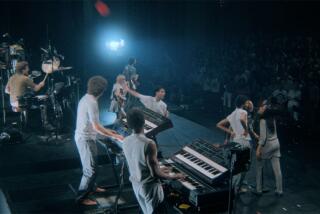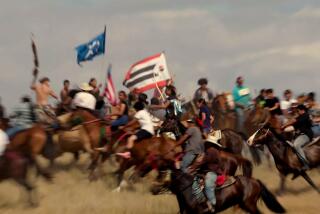Review: ‘Woodstock: Three Days That Defined a Nation’ recalls the love and the mud
Barak Goodman and Jamila Ephron’s documentary “Woodstock: Three Days That Defined a Generation” is structured like an oral history of the 1969 festival. Fascinating archival footage and photographs accompany audio interviews with the people who know Woodstock best — the producers, musicians and, most important, the attendees. With care and detail, Goodman and Ephron illuminate the corners of the Woodstock lore to draw out what really made it special — the communal spirit of love.
The film opens with what could have been the most catastrophic moment: the storm that blew in on Sunday, drenching the 450,000 festival-goers and reducing the fields to puddles of mud. But with the atmosphere of empathy, peace and love cultivated in large part by Wavy Gravy and the denizens of the Hog Farm commune, the storm turned into a moment for childlike wonder and play, proving to the world that half a million hippies in a field wasn’t such a dangerous thing after all.
The events of Woodstock have been told, so it’s refreshing that this documentary draws out the details one might not have heard before — the food donations from the town, the volunteer Army doctors, the attendees who stayed to pick up trash. It’s all in service of illustrating what a significant event this was, not as the culmination of a movement, but as the start of one, and the lasting influence it had on the lives of those 450,000 people.
-------------
‘Woodstock: Three Days That Defined a Generation’
Not rated
Running time: 1 hour, 37 minutes
Playing: Starts Friday, Landmark Nuart, West L.A.
------------
More to Read
Only good movies
Get the Indie Focus newsletter, Mark Olsen's weekly guide to the world of cinema.
You may occasionally receive promotional content from the Los Angeles Times.










